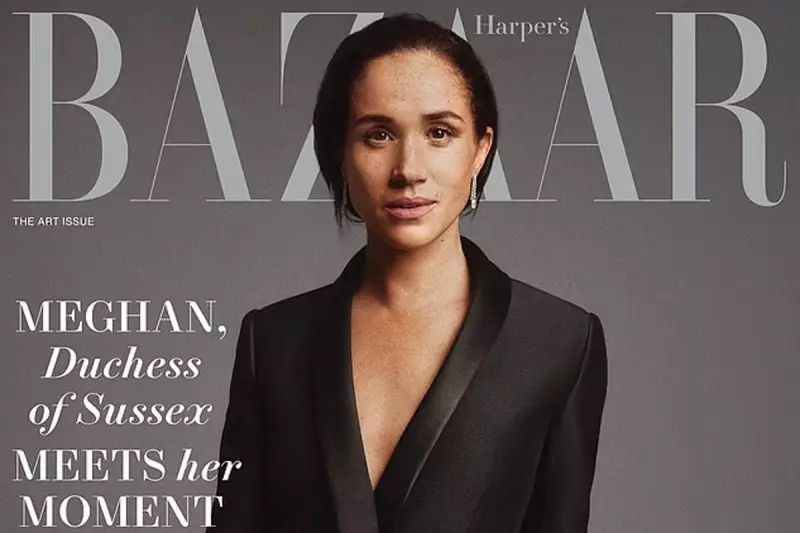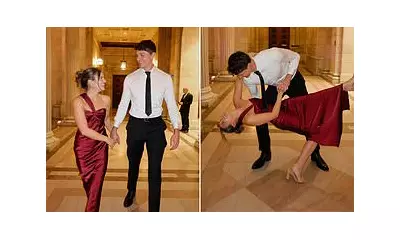
The Duchess of Sussex, Meghan Markle, has sparked widespread conversation with her latest magazine cover, appearing strikingly minimalist for the American edition of Harper's Bazaar. The shoot, which took place on Thursday 20 November 2025, features Meghan perched on a stool against a grey backdrop, wearing a black Dior jacket with her hair swept back.
What has truly captured public attention, however, is her face. The Duchess appears to be almost entirely makeup-free, showcasing her skin, subtly sculpted brows, and a visible smattering of freckles. While veteran makeup artist Diane Kendal is credited for the shoot, the overall aesthetic is deliberately natural and low-key.
The 'Bravery' Narrative and Why It Fails
There is no denying that Meghan looks radiant. Yet, the subsequent framing of this look as an act of 'bravery' and 'authenticity' is what critics find problematic. This phenomenon is not unique to Meghan; it's a well-established celebrity trend. The article references actor Jamie Lee Curtis praising Pamela Anderson's decision to go makeup-free on a 2023 red carpet as an act of 'courage and rebellion'.
This narrative, however, often rings hollow. When objectively beautiful women like Anderson or Meghan, with glowing, blemish-free skin, opt for a bare face, it does little to challenge pervasive beauty standards. Instead, it creates another benchmark for 'acceptable' naturalness' that remains out of reach for many.
Imperfections in a Perfect Package
In her accompanying interview, Meghan attempts to position herself as an advocate for embracing flaws, stating, 'There's no such thing as perfect' and 'I, too, get to make mistakes'. Critics argue these sentiments feel contradictory when juxtaposed with her curated public image of luxury, from Loro Piana knitwear to a picture-perfect kitchen.
The author contends that these makeup-free photos are humblebrags, packaged as empowerment. They force everyday women to compare themselves to an 'imperfect' standard that is still, in reality, flawless. If this is considered raw and real, it begs the question of where that leaves the vast majority of people with visible skin conditions like acne or rosacea.
The Unacceptable Face of Real Imperfection
The piece highlights a stark double standard. Bare female faces are celebrated only when they are radiant, blemish-free, and largely ageless. A genuinely brave move, the author suggests, would be for a celebrity with a visible skin condition to pose without makeup.
This point is underscored by the cruel online abuse directed at 17-year-old Scottish footballer Skye Stout earlier this year, who was mocked by adults for having visible spots in a club signing photo. This incident reveals that society still balks at truly imperfect skin.
Ultimately, the article concludes that the makeup-free celebrity cover is about branding, not bravery. It reinforces regressive ideas that a woman's character is tied to her appearance, all while doing little to inspire genuine self-acceptance among ordinary women.





